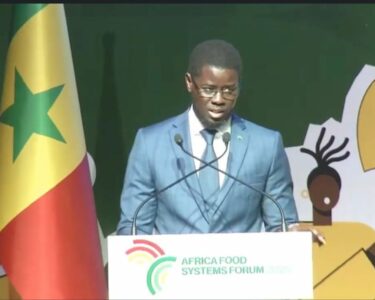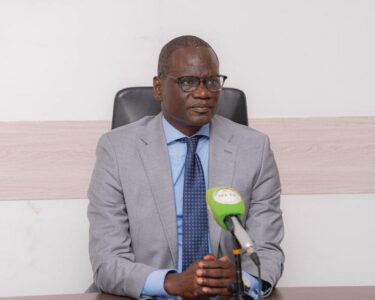Les écologistes ont demandé davantage d’éducation du public afin que le Nigéria puisse respecter ses obligations en vertu du Protocole de Montréal et de l’Amendement de Kigali.
Les experts ont fait cette demande le jeudi 10 avril 2025, à Abuja, lors d’un atelier des parties prenantes organisé par la Recherche et l’Action Durables pour le Développement Environnemental (SRADeV – Nigéria) avec le soutien de l’Agence d’Investigation Environnementale (EIA, Royaume-Uni).
Selon eux, en sensibilisant le public, le Nigéria peut réduire efficacement les émissions qui appauvrissent la couche d’ozone et encourager des habitudes durables qui protégeraient l’environnement pour les générations futures.
Le professeur Innocent Barikor, directeur général de l’Agence nationale de contrôle et d’application des normes environnementales (NESREA), a déclaré aux participants à l’événement qu’en tant qu’agence principale du Nigéria pour le suivi et l’application de la conformité environnementale, son organisation s’engage à mettre en œuvre des politiques et des réglementations qui protègent l’environnement des polluants tels que les gaz fluorés (F-gaz) et les substances appauvrissant la couche d’ozone (SAO).
Le DG, représenté par Elijah Udofia, directeur du contrôle de la qualité environnementale, a déclaré que les efforts du NESREA pour collaborer avec les ministères, agences et partenaires de développement concernés ont constamment promu des pratiques environnementales plus propres et plus durables dans divers secteurs.
« Pour réaliser des progrès significatifs, il faut une action collective visant à adopter des technologies innovantes, à renforcer les cadres réglementaires, à sensibiliser le public et à encourager la participation du secteur privé à la transition vers des alternatives respectueuses de l’environnement », a-t-il ajouté.
L’atelier, selon lui, constitue donc une plateforme essentielle pour débattre de solutions pratiques, partager les meilleures pratiques et accélérer les stratégies de mise en œuvre visant à réduire ces émissions nocives.
Le professeur Barikor a félicité SRADev Nigeria et le financier du projet, EIA UK, pour avoir facilité le dialogue, assurant que NESREA continuerait à fournir le soutien technique et réglementaire nécessaire pour garantir que le Nigeria respecte ses engagements en vertu des traités environnementaux internationaux tout en promouvant le développement économique et social.
Il a exhorté les participants à garder à l’esprit que les décisions qu’ils prennent aujourd’hui auront un effet à long terme sur la résilience environnementale, la santé publique et la durabilité de la planète.
« Ensemble, nous pouvons faire progresser un Nigéria plus propre, plus sain et plus résilient au changement climatique », a déclaré le patron du NESREA.
Tout en saluant également cette question, l’assistant spécial du président nigérian sur le changement climatique, Yusuf Kelani, a identifié l’éducation et une application rigoureuse de la loi liée au climat comme les mesures les plus efficaces pour répondre aux préoccupations environnementales croissantes du Nigéria.
Selon l’assistant présidentiel, la sensibilisation dès le plus jeune âge permettra aux générations futures de mieux comprendre et d’atténuer les effets du changement climatique tout en encourageant les pratiques durables.
« Nous pensons que dès leur plus jeune âge, les gens doivent comprendre ce qu’est le changement climatique, ses effets et le rôle qu’ils peuvent jouer dans la protection de l’environnement », a déclaré Kelani.
Il a également évoqué une initiative sur laquelle travaille son bureau, qui vise à nommer au moins deux ambassadeurs du changement climatique pour chacune des zones de gouvernement local du Nigeria d’ici la fin de l’année.
Ce programme, a expliqué Kelani, contribuerait à garantir que les discussions sur le changement climatique soient promues au niveau local, favorisant ainsi l’appropriation et l’engagement locaux en matière de gestion de l’environnement.
Parlant de l’objectif de l’exercice, le directeur exécutif de SRADev Nigeria, le Dr Leslie Adogame, a fait allusion au fait qu’il représente un tournant majeur dans les progrès globaux du pays vers la durabilité environnementale et la résilience climatique.
Ce programme, a-t-il expliqué, vise à soutenir et à amplifier les efforts continus du gouvernement nigérian pour passer à des alternatives à faible potentiel de réchauffement global (PRG), réduisant ainsi les risques environnementaux et de santé publique associés aux gaz à effet de serre fluorés (gaz F) et aux substances appauvrissant la couche d’ozone (SAO).
Le Dr Adogame a laissé entendre que le projet, qui vise à « promouvoir une action rapide pour réduire les émissions de gaz à effet de serre fluorés (F-gaz) et de substances appauvrissant la couche d’ozone (SAO) au Nigéria », comprendra la réalisation d’évaluations complètes, l’augmentation de l’engagement des parties prenantes et le renforcement des capacités et de la sensibilisation.
Le directeur exécutif de SRADev a déclaré que le Nigéria a fait preuve d’un engagement indéfectible envers les accords environnementaux internationaux, notamment le Protocole de Montréal et ses amendements ultérieurs.
Selon lui, les mesures proactives du gouvernement comprennent la réduction progressive des hydrochlorofluorocarbures (HCFC), avec pour objectif d’éliminer progressivement 51,35 % de la consommation de HCFC d’ici la fin de cette année.
Il a ajouté que des initiatives comme le projet AGORA ont été lancées pour promouvoir des technologies de refroidissement économes en énergie et respectueuses du climat.
Toutefois, malgré ces efforts louables, il a reconnu que des défis persistent dans la transition complète vers des alternatives à faible PRG.
« Notre projet vise à combler ces lacunes en fournissant le soutien nécessaire par le biais de la sensibilisation, du renforcement des capacités et d’un engagement solide des parties prenantes pour accélérer l’adoption de technologies et de pratiques durables », a déclaré le Dr Adogame.
Alors que les parties prenantes s’engagent dans cette démarche cruciale, il est important de réaffirmer leur engagement collectif à préserver l’environnement pour les générations présentes et futures. En effet, grâce à une action collaborative, à des politiques éclairées et à un plaidoyer résolu, le Nigéria peut parvenir à des réductions significatives des émissions de gaz fluorés et de substances appauvrissant la couche d’ozone, contribuant ainsi à une planète plus saine et à une nation plus durable.





